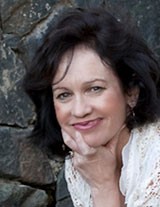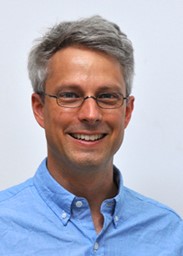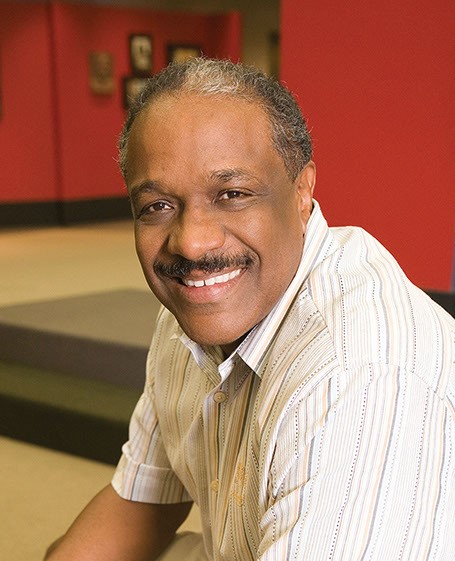
Archives Welcomes Award-Winning Authors of Children’s Literature
By Kerri Lawrence | National Archives News
WASHINGTON, May 25, 2018 — The National Archives will welcome aspiring young authors to its Washington, DC, museum for the second annual “Write” Stuff event on June 2, 2018.
Created specifically for budding authors and illustrators in the 4th through 8th grades, and their families, the event will feature Caldecott and Newbery award–winning authors sharing their experiences and inspiration. Writers, illustrators, and National Archives staff will lead author talks, hands-on activities, and mini-lessons focusing on the use of primary sources and history to guide the narrative.
Featured authors will include Gennifer Choldenko, Brian Floca, Christopher Paul Curtis, and Jim Murphy. Zachary Clark will moderate the author’s roundtable discussion.
Choldenko is the author of the Tales from Alcatraz series, which includes her newest book, Al Capone Throws Me a Curve. She said the National Archives plays an important role in helping her solve problems when writing about history.
“I love dusty, forgotten corners of history,” Choldenko said. “Quirky true facts are caffeine for my muse. I don’t believe in writer’s block. When I get stuck, the problem is almost always not enough information, and that’s where the National Archives comes in.”
Choldenko added that “the past is the world’s best story buffet. The National Archives can help writers by hosting information sessions for detectives in training. The word ‘research’ has a bad reputation. We need to break the process down into manageable parts so it isn’t so intimidating.”
Floca, who wrote Moonshot: The Flight of Apollo 11 about the 1969 space mission that landed the first two people on the Moon, also spoke about the importance of research.
“It's important for young people to hear that even for those of us who do a lot of research, and do it often, that the process isn’t always sunshine and inspiration,” Floca said. “It can be frustrating and difficult. Sometimes you can’t find what you need, and sometimes you don’t even know what you need—research can feel like being lost in the woods!”
Floca added that by keeping at it, writers can start to make a sort of map of those “woods.”
“You get yourself oriented, and then you start making discoveries, and see how one path connects to another, and maybe you even start to get a sense of where something might be hidden, waiting for you to find it,” he said. “And that’s exciting—so exciting that you feel like sharing it with someone else, and that's a great help when you’re trying to write a story, or draw a picture.”
When asked how the National Archives can help aspiring writers, Floca likened the Archives research facilities to the wizarding bank operated by goblins in the famous Harry Potter novels.
“When I visited the National Archives a few years ago with my young nieces, one of them said as we walked into the building, ‘It’s like Gringott’s!” said Floca. “So I would say don’t underestimate what a beautiful place this is, and the power of that. Get kids in here, and let them know they can come back!”
Floca followed up with some advice on engaging children in research and all that the National Archives has to offer.
“Once they're here, the real treasure is the history. I think the trick of getting kids interested in research and history—and it can be a trick—is helping them to see the stories in history, and the stakes in those stories,” he said. “I think it’s often too easy to see history as a sort of list of things that happened, that in a sense had to happen, rather than as a constant series of inflection points, coincidences, risks, possibilities, and accidents.”
Curtis is the author of Bud, Not Buddy, a novel about an African American orphan during the Great Depression, and The Watsons Go to Birmingham—1963, about an African American family from Flint, Michigan, that travels to Birmingham, Alabama, where they experience tragic events during the troubled days of civil rights struggles in the Deep South.
“As a writer, you are powerful,” Curtis said. “The job of a writer is an important one, as it carries the responsibility to tell the stories of our collective history.”
Curtis encouraged young writers to “keep on writing. The more you do it, the better you get,” he said. “But, you don’t have to follow all the rules, either. Develop your own style, as there is where you will find your best work.”
For more inspiration and the opportunity for young writers to interact with the featured authors, Amber Kraft, a National Archives education specialist and organizer of the “Write” Stuff event, encourages students to join the National Archives for a day of discussions, read-alouds, hands-on activities, and a question-and-answer session with the authors. Kraft said all of the authors will be available for book signings throughout the afternoon, and many of their books will be available for sale.
“The event is designed as a fun and engaging way to introduce young people to the National Archives and the importance of research,” Kraft said. “By interacting and learning from authors who are excellent at incorporating primary sources to make their writing come to life, I hope that the program will create lasting memories for the participants and mold them into the next generation of Archives stewards and users.”
“Write” Stuff events will be held at the National Archives’ William G. McGowan Theater and Boeing Learning Center. The events are free and open to the public. Registration is requested for the morning author conversations, which will be broadcast on YouTube as well. See full event schedule, details, and registration online.


